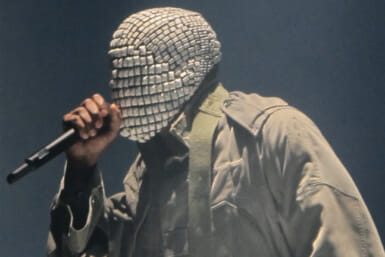It’s Monday morning and I glance at my to-do list: bank, grocery, pick up film and dry cleaning, get kids’ hair cut, buy disposable latex gloves and face masks. We just heard that mail from DC to the Virginia suburbs passes through a post office in the District where anthrax spores were found.
I’m the one who picks up our mail, opens and sorts it, and now I need to don protective gear for the task. Is this for real? On one hand it seems a bit extreme, like ordering gas masks, but at the same time I want to do everything I can to protect our family from bio-terrorism or whatever else is lurking out there.
For parents and children, the world today is not the same one we were dealing with before Sept. 11. We try to strike a balance between being prepared for any catastrophe, while at the same time reassuring our children that they are safe. But do we feel safe? Probably not, since the scope of catastrophes likely to occur has broadened considerably.
As parents struggle to handle our own feelings about the recent tragedies and continuing threats, we have to find ways to help calm our children’s fears and also teach them a new kind of vigilance that wasn’t necessary before.
In the first few weeks after the attacks, our non-TV-watching family was tuned in practically 24 hours a day. I felt that our children, all teenagers, were old enough to view the disturbing images and hear the heartbreaking stories, but most experts advise parents with younger children to shield them from any TV news about terrorism. We finally succumbed to sensory overload and now the children rarely watch the news, but they do read a daily newspaper.
As frightening as some of this news is, there is no point in trying to keep information from your kids as they will eventually hear the truth. I usually ask our children to read aloud some of the headlines as I’m preparing breakfast; that way we all have a few minutes to discuss any recent developments that might impact our lives.
Many families sat down after Sept. 11 and reviewed or created emergency procedures for every member of the family. It was actually helpful for our children to participate in these discussions; they had some good ideas and felt more secure once they knew what plans we had in place. We also discussed what supplies to have on hand at all times, at home and in the car. This was a routine part of our life while living in earthquake-prone Japan, but somehow planning to escape a terrorist attack is much more unsettling.
Experts urge parents to be available to their children and encourage them to ask questions. Even if your child is too young to articulate his fears, he can express feelings and gain reassurance from drawing pictures, reading books or role-playing with puppets and stuffed animals. The American Library Association has posted a resource list of books that may be helpful for all ages.
Visit www.ala.org for suggestions such as One April Morning: Children Remember the Oklahoma City Bombing by Nancy Lamb, or What on Earth Do You Do When Someone Dies? by Trevor Romain and Elizabeth Verdick. Insightful books for parents include The Right Book, The Right Time…Helping Children Cope by Martha C. Grindler, and Parenting through Crisis, Helping Kids in Times of Loss, Grief, and Change by Barbara Coloroso. Numerous websites also offer advice for anxious children; try www.aap.org, or www.nasonline.org.









